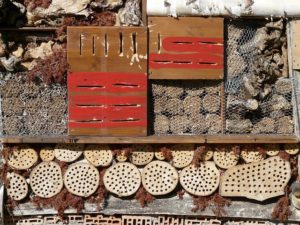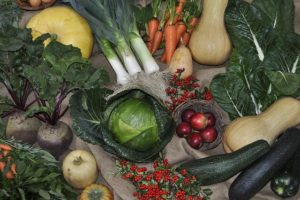Tenerife Permaculture – why it’s important
Tenerife Permaculture: In principle, our Food Forest – Edible Forest Garden is based on the principles of permaculture. There are countless papers on permaculture and its implementation. Permaculture on Tenerife, for example, also has special features that are adapted to the climate, temperature, water, wind, sun and, of course, not least, the soil conditions. But what actually is permaculture? What does the term mean? What is so special about permaculture? How do you implement permaculture on Tenerife? Ecological food garden Tenerife.
Tenerife permaculture: Biodiversity of Plants and Animals
Permaculture is capable of a whole host of “tricks”, i.e. many things become possible through the targeted interplay of sun, light, shade, water, flora and fauna. In Tenerife, for example, the “foodforest-ecotava.org” project is not only creating a normal edible forest garden, but even a “Tropical Food Forest”.

What does permaculture mean?
The term comes from the English “permanent agriculture” and means something like “permanent farming” or “permanent cultivation”. Originally, it is a sustainable concept for agriculture and horticulture in which natural ecosystems and cycles of nature are observed, imitated and optimised. The concept was developed in the 1970s by the Australian Bill Mollison and his student David Holmgren. In the meantime, permaculture has developed from an agricultural design method to an ecological philosophy of life.
The starting point was a sustainable counter-design to the prevailing industrial agricultural system with monocultures, use of insecticides, herbicides, etc. The goal was high-yield agriculture. The goal was high-yield agricultural systems that work with nature and not against it. At that time, organic farming was already known in Europe, which Mollison incorporated into his ideas. Permaculture also contains elements that were already known thousands of years ago.
Concept of permaculture
One of the aims of permaculture is to reduce or replace energy-intensive and environmentally harmful industrial technologies. In agriculture, biological resources and a design that mimics natural ecosystems are used. Permaculturally designed habitats are seen as systems in which the coexistence of people, animals and plants is combined in such a way that the systems function indefinitely. The settlement of different plants and animals promotes natural biodiversity, with the help of which a circular economy takes place. Through closed material cycles, stable ecosystems develop in the long term, which not only maintain themselves but also develop further.
Permaculture on Tenerife
Just as in the horticultural sector, only a few experiences from Central Europe can be transferred to the Canary Islands, because important climatic events (winter/frost) are missing. Nevertheless, the permaculture methodology is the same all over the world and so the approach to designing a permaculture on Tenerife can very well be compared with other places. Special features of Tenerife are e.g. solar radiation, water scarcity, wind, soil erosion, which should be taken into account when considering the design of a permaculture.

Tenerife permaculture: a permaculture garden has a lot to offer
Permaculture is capable of a whole host of “tricks”, i.e. many things become possible through the targeted interplay of sun, light, shade, water, flora and fauna. For example, the “foodforest-ecotava.org” project on Tenerife is not just a normal edible forest garden, but even a “Tropical Food Forest”.
Guided tour through our permaculture and finca
Are you a hobby gardener or professional and want to see what fruit and vegetables grow on Tenerife? Which climate zones are suitable for optimal cultivation? Are you interested in self-sufficiency on Tenerife or sustainable agriculture? Are you interested in visiting our permaculture and our finca? We offer various guided tours for this purpose.
